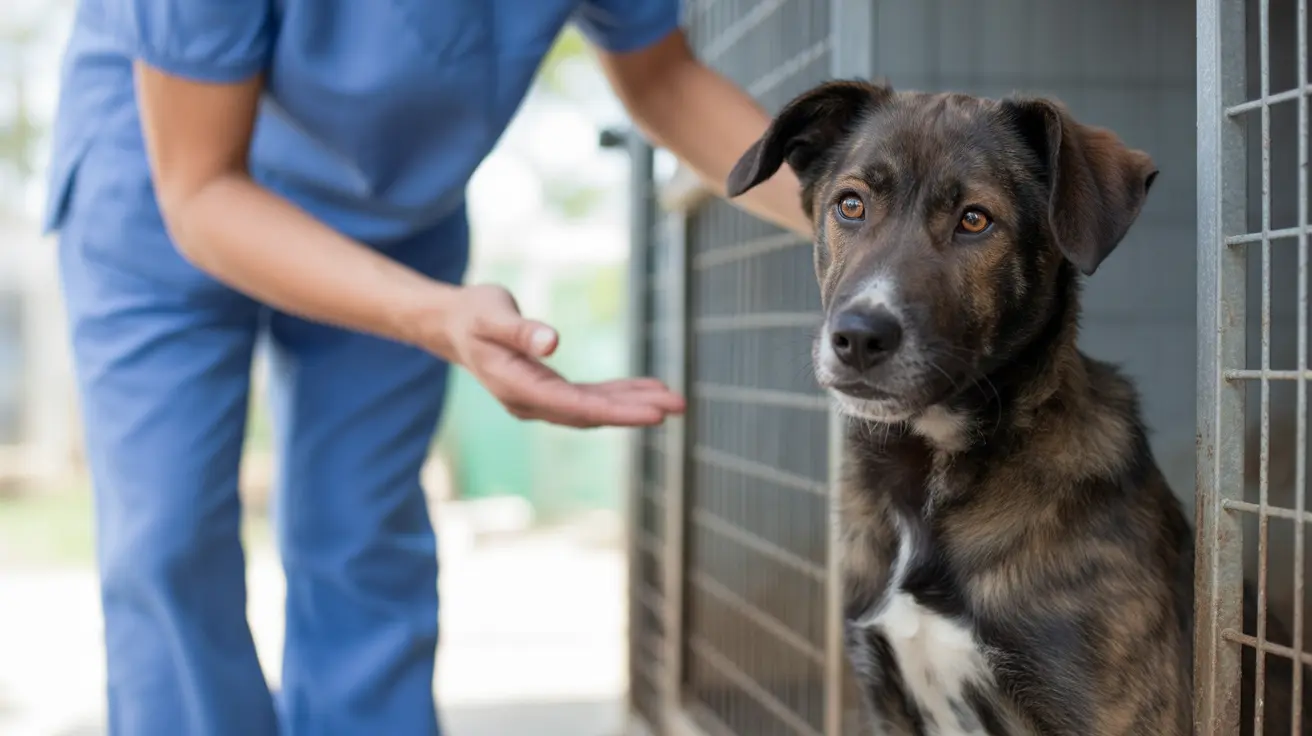Can Dogs Eat Cottage Cheese? A Detailed Guide
What Is Cottage Cheese?
Cottage cheese is a soft, white cheese made from curdled cow's milk. It comes in various fat contents and curd sizes, offering a mild flavor and creamy texture. People often choose it for its high protein, calcium, vitamin D, and B vitamins—making it a nutritious human food.
Is Cottage Cheese Safe for Dogs?
Yes, most dogs can safely enjoy cottage cheese in small amounts. Its lower lactose content makes it easier on canine stomachs than some other cheeses. The protein supports muscle growth and repair, while calcium and vitamin D help keep bones strong. Cottage cheese also contains probiotic bacteria from fermentation that may benefit your dog's gut health.
Nutritional Benefits for Dogs
- High-quality protein: Helps maintain muscles.
- Calcium & vitamin D: Support healthy bones and teeth.
- B vitamins: Aid metabolism and energy production.
- Probiotics: May improve digestive health.
Cottage cheese is sometimes recommended as part of a bland diet for dogs recovering from stomach upset—often mixed with white rice to soothe digestion.
How Much Cottage Cheese Can Dogs Eat?
Start with a small amount—just a spoonful or two—mixed into your dog's regular food. For most dogs, about 3 ounces per 25 pounds of body weight is a typical portion. If your dog tolerates it well (no diarrhea or vomiting), you can offer it as an occasional treat or supplement. But don't let cottage cheese make up more than 10% of their daily calories without consulting your veterinarian or a canine nutritionist.
The Best Types of Cottage Cheese for Dogs
- Low-fat: Ideal for overweight or less active dogs.
- Unsalted: Reduces sodium intake to protect kidneys and blood pressure.
- Lactose-free: Good for dogs sensitive to lactose.
- Organic: May help dogs with allergies or sensitivities avoid synthetic additives.
- Homemade: Lets you control ingredients and freshness.
Cottage Cheese as a Treat or Supplement
You can use cottage cheese as a tasty way to deliver medications (though avoid using it with antibiotics like tetracyclines since calcium interferes with absorption). It also works well in homemade dog treats or mixed with bland foods during digestive recovery. Still, always serve plain cottage cheese—never flavored varieties or those containing onions, chives, garlic, sweeteners, fruits, nuts, or spices.
Pitfalls and Precautions
- Lactose intolerance: Some dogs can't digest dairy well; watch for gas, diarrhea, or vomiting after eating cottage cheese.
- Weight gain: Too much can add unnecessary fat and calories to your dog's diet.
- Sodium concerns: Salted varieties may strain kidneys or raise blood pressure over time.
- Dairy allergies: Rare but possible; stop feeding if your dog shows signs of an allergic reaction (itching, swelling).
- Kidney/pancreas problems: Avoid all cheeses unless approved by your vet if your dog has these health issues.
If you notice any adverse reactions after introducing cottage cheese—such as loose stools or lethargy—stop feeding it immediately and consult your veterinarian. For dogs who have previously reacted poorly to dairy products, it's best to skip cottage cheese altogether.
Cottage Cheese Alternatives for Dogs
- Plain Greek yogurt (unsweetened): Offers probiotics with less lactose than regular yogurt.
- Eggs (cooked): Provide protein without dairy concerns; serve plain without added seasonings.
- Lean meats (like boiled chicken): Give high-quality protein without extra fat or additives.
- Pure peanut butter (in small amounts): Choose unsweetened versions free from xylitol (a toxic sweetener).
Avoid processed cheeses or those with added flavors, fruits, nuts, or spices—they often contain ingredients harmful to dogs. Remember: most commercial dog foods already provide balanced nutrition; human foods like cottage cheese should be limited treats rather than dietary staples. Keep all treats under 10% of your dog's daily caloric intake unless otherwise directed by your vet.
The Bottom Line: Moderation Is Key
Cottage cheese can be a safe—and even beneficial—snack for many dogs when served occasionally in small portions. Opt for plain, low-fat varieties without added salt or flavorings. Introduce new foods slowly so you can monitor how your dog reacts. And always check with your veterinarian before making significant changes to your pet’s diet—especially if they have known health issues like kidney disease or pancreatitis. With the right precautions in place, cottage cheese might just become one of your dog's favorite special treats!





